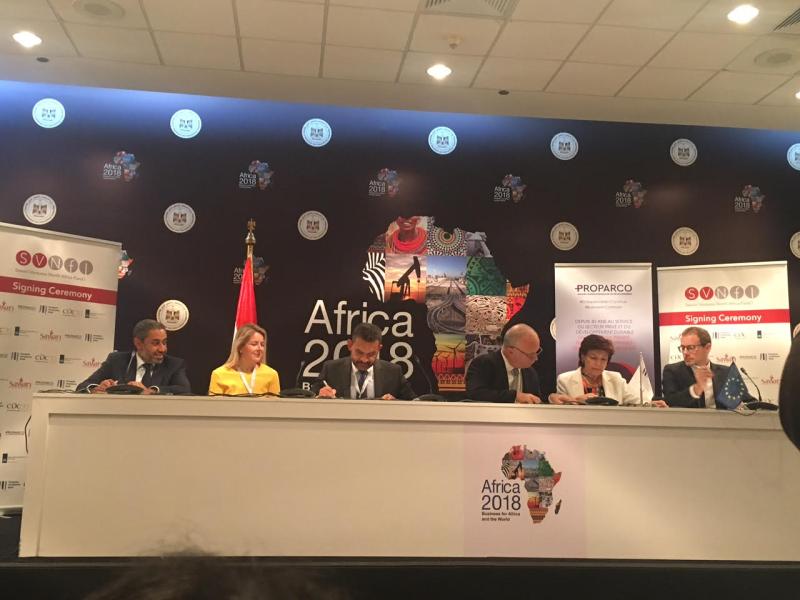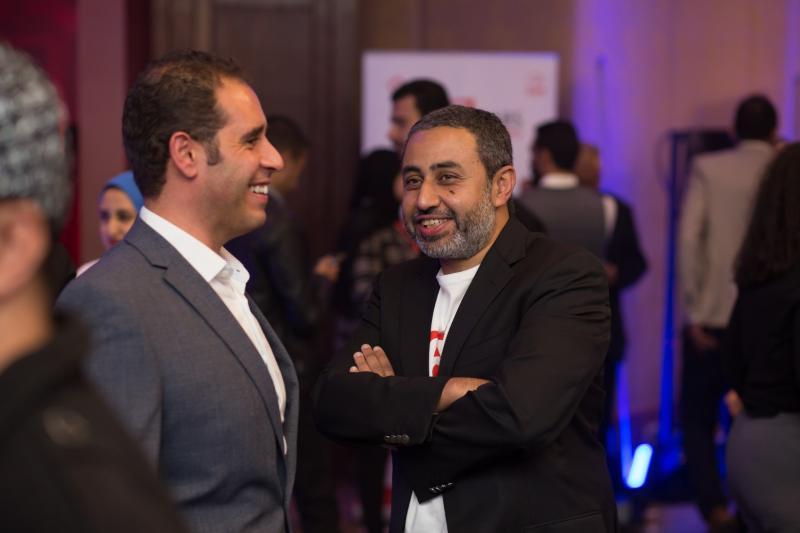Seed money helps Africa start-up entrepreneurs survive when the chances of success are low
By Yusuf Yassin
The odds were stacked against the Egyptian brothers Ashraf and Haytham El Fadeel in 2009 when they founded Kngine, an online search engine that answers questions and can be used to automate customer service departments. Fresh out of university and in need of cash to grow this business, the two brothers approached several investors. But they struggled to raise capital.
It was only in 2011, after Kngine received $275,000 in seed funding from Sawari Ventures, a venture capital firm in Cairo, that investors began to take notice of the brothers’ new company. Kngine went through another round of funding before being purchased in 2017 by Samsung, the South Korean electronics giant.
Entrepreneurs need early-stage capital
Wael Amin, a partner at Sawari Ventures, says there are more gems like Kngine in North Africa’s rapidly growing technology sector. The secret is finding them and giving them aid.
“There are some fantastic start-ups around with attractive valuations that have the potential to become global players,” he says.

A signing ceremony last year for the new start-up fund that Sawari Ventures created.
Until recently, Sawari Ventures used its own capital to invest in regional talent. That changed last year when the firm created the Sawari Ventures North Africa Fund I. The new fund received $35 million from outside investors, including $11.3 million from the European Investment Bank.
300 new companies and 5,000 jobs in Africa
The Sawari Ventures North Africa Fund I will help early- and growth-stage companies in Egypt, Tunisia and Morocco. Sawari hopes the fund will support 300 companies and add or sustain up to 5,000 jobs in North Africa. A separate fund, financed by local Egyptian institutions, also will be established, bringing in a further $25 million for start-ups.
The European Investment Bank’s involvement was vital in attracting other investors, Amin says. “The EIB was the first financial institution to express interest in our project. Without their buy-in, it would not have been possible to close the fund,” he says.

Hany Al Sonbaty, right, a co-founder of Sawari Ventures, attending a Flat6Labs event promoting local start-ups.
Africa graduates seek success abroad
Egypt’s universities produce thousands of talented computer scientists and engineers every year. But the lack of job opportunities in the country have driven many tech-savvy graduates to seek success abroad in places like Dubai. The World Bank says the youth unemployment rate in Egypt is 34%.
This loss of local talent is slowing as the region’s start-up ecosystem grows. Ten percent of the Sawari North Africa fund will go to Flat6Labs, a regional start-up accelerator created by Sawari Ventures that offers entrepreneurs training and access to wide network of mentors.
Promoting innovation
The European Investment Bank’s contribution to Sawari Ventures’ new fund is the first operation supported by the EIB’s Economic Resilience Initiative Risk Capital Facility. The facility blends the Bank’s own funds with money from outside donors. Eight EU country donors – Croatia, Poland, Lithuania, Luxembourg, Italy, Slovakia, Slovenia and the United Kingdom – gave a total of €25 million for the facility.
Felix Knidlberger, an equity investment officer at the Bank, says the investment in the fund would not have been possible without the donors. “Due to the high-risk nature of venture capital and limitations on how much of the Bank’s own resources we could use, it was important to bring in donor funds to finance the deal,” he says.
One might ask why start-ups don’t simply take out a loan to grow their businesses. Amin says this extra debt dissuades entrepreneurs from innovating. “If entrepreneurs are saddled with large debts, they are less willing to take risks and will instead stick to what they know works,” he says.
The Uber of buses
Sawari Ventures’ first investment under the North Africa I fund supported the expansion of an Egyptian bus start-up called Swvl (pronounced swivel). The company operates more than 650 bus lines in the country’s two largest cities, Alexandria and Cairo, and is addressing a glaring problem in Egyptian cities: too many cars and not enough reliable public transport.
Swvl likes to call itself the “Uber of buses.” It connects passengers with bus drivers in real-time by using a mobile app, allowing people to identify pickup points and alerting bus drivers of nearby passengers. Payments are made using the app, so drivers don’t have to worry about collecting fares while navigating busy streets. Swvl added buses in Kenya earlier this year and plans to enter other African markets.
Even Knidlberger, the European Investment Bank investment officer, says he plans to download the Swvl app before his next trip to the region.